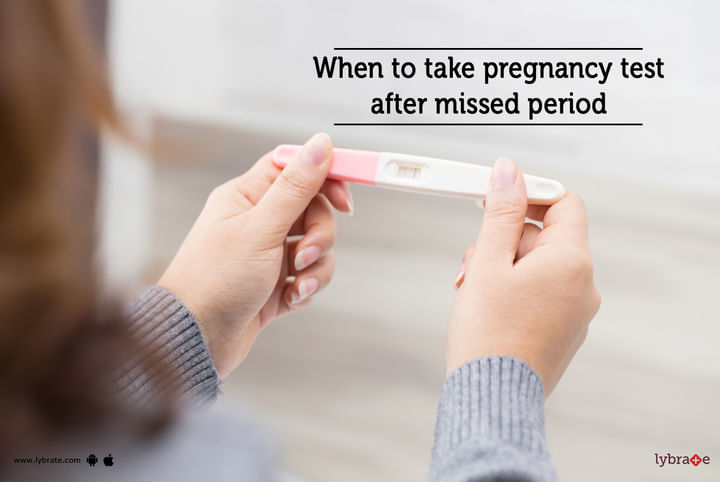When to take pregnancy test after missed period
If you are sexually active then missing a period may wanna make you take a pregnancy test. Most women take pregnancy tests on the first day after a missing period. But if you are not sure about the expected date of your next period, you should do the test at least 3 weeks after your last incident of unprotected intercourse. This method is ideal for the one who has regular periods but in some cases when a woman doesn’t have a regular menstruation cycle due to any certain reason.
Also, if you are on birth control pills and still miss your period or feel early pregnancy symptoms like tender/ sensitive breasts or cramps, you should consider taking a pregnancy test just to be sure.
You can use some extremely accurate pregnancy tests even before you miss a period or if you experience any of the following early pregnancy signs, including;
- Fatigue
- Headache
- Mood swings
- Metallic flavor
- Breast soreness
- Frequent urination
- Smell Sensitivity
- Morning Sickness
- Food cravings or repulsions
- Light cramps/implantation cramps
- Very light spotting/implantation spotting
Keep in mind that none of the aforementioned symptoms are absolute indicators of pregnancy; they might simply be brought on by other conditions like the flu, a cold, or a few sleepless nights, hence taking a pregnancy test is always required to confirm the pregnancy.
Taking a pregnancy test is always suggested by doctors as soon as you skip a period or suspect you could be pregnant.
How to take pregnancy test
You can confirm pregnancy both at home and at a clinical step up. Generally at home you can have a home testing kid that requires a urine sample while in the clinic, the test can be done both through blood and urine performed by a medical professional.
Since, the pregnancy test works by detecting a hormone Human Chorionic Gonadotropin (hCG), levels in your blood and urine. Your body starts to produce this hormone in your blood six days after the fertilization. HCG takes a little longer to show up on pee testing.
HCG production starts out gradually and picks up as the pregnancy progresses. When the hCG level reaches 20 to 50 milliunits/milliliter, a pregnancy test will detect it and show it in the reading. For the first eight to ten weeks of pregnancy, HCG levels rise quickly (nearly doubling every three days).
The blood test is more accurate and can detect the pregnancy early than urine based tests. Additionally blood tests require less of the hCG hormone to identify pregnancy;
Blood test: Blood testing is ideal for pregnancy tests that can find hCG hormone levels as low as 5 to 10 mIU/mL.
Urine test: Higher concentrations of hCG, typically at least 20 mIU/mL, are needed for at-home urine tests to identify pregnancy.
Your healthcare professional can suggest a blood test to monitor your hCG levels if the results of your at-home pregnancy test are positive. The results can be used to confirm your pregnancy and figure out how old it is.
When to take the pregnancy test
You can take an at-home pregnancy test one on the following timelines if you're unsure of the best time to take test;
- Take the test 3 to 4 weeks following the first day of your last period. During this time levels of hCG hormone in your urine will be increased to the point where they may be easily detected by your kit.
- Also, you could wait till you skip your two subsequent periods, which will be a sure shot sign that you are expecting in any case!
- For early detection a blood test will be ideal done by a health expert.
What time of the day is best to take a pregnancy test?
Early morning urination
The ideal time to take a pregnancy test is when you wake up for the day, especially if your period is only a few days late or is not late at all. The pregnancy test kits work by catching the level of hCG hormone present in urine, hence first urine is best for the test as it is more concentrated when you wake up after long hours of sleep unless you get up in between and urinate frequently or drink water all night long.
Also, for ladies who work the night shift, the urine you passed after sleeping during the day will be considered your first urine, no matter what time it is.
Any other time of the day
You can take the pregnancy test at any time of the day. But as home kits detect hCG levels in urine, results can vary due to the low levels of hCG hormone in urine. In this situation, you are more likely to receive a false negative result, particularly if you are taking the test right after a possible fertilization or if you have a lot of water in your system, that may dilute your pee.
Conclusion
When taking at-home tests, always keep in mind there is always a substantial likelihood of error as it depends on so many variables. Taking a test with your first urine of the day is always advisable due to high concentration of hCG hormone. Also, to double check the result of your test, take one more at-home test with a new kit or visit your healthcare provider for a more accurate testing.



+1.svg)
